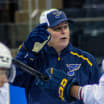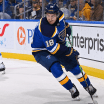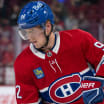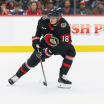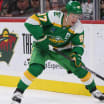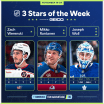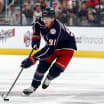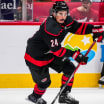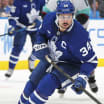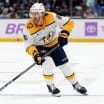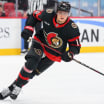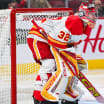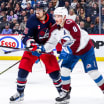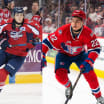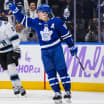Recalling landmark 1967 All-Star Game ahead of 2022 NHL All-Star Weekend
Was first exhibition played midseason, last before expansion, only shutout
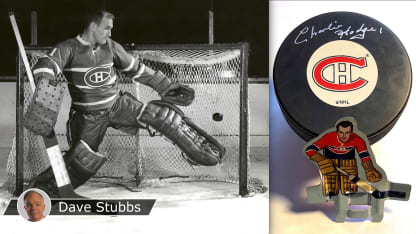
Anything, perhaps, except his team of 13 future Hall of Famers being historically shut out.
The 2022 Honda NHL All-Star Weekend is heading to Las Vegas, the Truly Hard Seltzer NHL Fan Fair (Thursday-Sunday) wrapped around the All-Star Skills Presented by DraftKings Sportsbook (Friday, 7:30 p.m. ET; ESPN, SN, SN Now, TVAS) and the Honda NHL All-Star Game (Saturday, 3 p.m. ET; ABC, ESPN+, SN, SN Now, TVAS).
The four-day event won't be confused in any way for the 60 simple minutes of hockey that was served up 55 years ago, Howe considering the possibilities of Jan. 18, 1967 in his syndicated newspaper column that appeared in print the morning of the game.
This would be the first time in 20 editions that the exhibition was being played midseason. Since 1947, the game had been the launch of the season, an All-Star team against the defending Stanley Cup champion with an intensity that sometimes got out of hand, the bitterness of the playoffs still fresh.
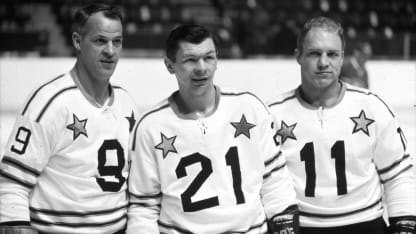
The line of Gordie Howe (left), Stan Mikita (center) and Bobby Hull before the 1967 All-Star Game in Montreal.
"I've been asked if there isn't a chance temper may be higher than usual because more than half the schedule has been played," Howe speculated in his column ahead of the 1967 game, having been named most valuable player in Montreal in 1965 with four points (two goals, two assists) in a 5-2 All-Star win. "The inference, of course, is that some hard feelings may have developed since the season started.
"The best way to answer that is to say there are never hard feelings off the ice. Always remember we never hold a grudge … or never forget."
Howe was joking, or not, Mr. Hockey famous for filing away the name of a miscreant opponent for suitable repayment a few shifts, games, weeks or even months later.
As it turned out, referee Vern Buffey called only three minor penalties during the sleepy 1967 affair, a 3-0 victory for the Canadiens against an All-Star team that was assembled from the NHL's five other teams, 13 future Hall of Famers in the 17-man lineup.
It was, and remains, the only 60-minute shutout in NHL All-Star Game history, Charlie Hodge making 14 saves in the first period and nine more in the third with Gary Bauman stopping 10 in the second.
Charlie Hodge (left) and Gary Bauman, who would join the 1967-68 Minnesota North Stars in the expansion draft, are the only goalies to have recorded a 60-minute shutout in the NHL All-Star Game.
The Canadiens, with captain Jean Beliveau out with an eye injury and goalie Gump Worsley recovering from knee surgery, had four shrine-bound players on their 19-man roster, six including the sidelined pair. With forwards Jim Roberts and Leon Rochefort both hobbled by leg injuries, the Canadiens called up defenseman Noel Price from Quebec of the American Hockey League and started goalie Gary Bauman, who three nights earlier had won his NHL debut with 32 saves in a 3-1 road win against the Boston Bruins.
By the end of their careers, players on both teams would have accumulated participation in 245 All-Star Games, Howe's 23 and Glenn Hall's 13 NHL records to this day for skaters and goalies, respectively.
Others with double-digit participation included five forwards: All-Stars Frank Mahovlich (15), Alex Delvecchio (13), Bobby Hull (12) and Norm Ullman (11), and the Canadiens' Claude Provost (11).
"What could be better than playing on a line with Bobby Hull and Stan Mikita?" Howe wrote. "You know you are playing with the best."
Canadiens forward John Ferguson, here in 1960s Forum action against Chicago goalie Denis Dejordy, scored twice and took a 1967 All-Star Game penalty for a run-in with Detroit's Norm Ullman (right).
One of the three penalties, to the delight of a Forum crowd of 14,284, was assessed midway through the second period to the Canadiens' John Ferguson, who knocked Ullman to the ice with a gloved punch to the face.
"[Ullman] slashed me behind the goal and broke my stick," said the cantankerous Ferguson, who scored twice for the Canadiens, Henri Richard adding the other. "Then I hit him with a good shoulder check and he cross-checked me under the chin. So I just zinged him one, right on the nose."
This was Hodge's second brush with history. In 1964, playing against the defending champion Toronto Maple Leafs, he was nicked for two minutes by referee John Ashley for having intentionally frozen the puck, thus becoming the first All-Star Game goalie ever penalized.
His second game, at the Forum in 1965, was notable for the bizarre goalie strategy used by Canadiens coach Toe Blake -- Hodge and Worsley were rotated roughly every five minutes during Montreal's 5-2 loss.
Frank Mahovlich (left) and Alex Delvecchio retired with a combined 28 All-Star Game appearances.
The 1967 game was the final one played before the NHL expanded from six to 12 teams for the 1967-68 season, and was beamed "live and in living color," one newspaper reported, to the United States on a network of roughly 70 independent stations cobbled together by Madison Square Garden-RKO General Sports Production. In Canada, the Wednesday night game from the Montreal Forum was telecast on CTV.
The game itself would be almost a sidebar to the colossal business news of the day, the NHL Board of Governors announcing details of expansion and a U.S. television deal with CBS. Six new teams were to pay fees of $2 million each to join the League; the network was to pay $3.6 million for three years to carry a number of regular-season Sunday afternoon games, the Stanley Cup Playoffs and the All-Star Game.
Ed Giacomin (left) allowed one goal while Glenn Hall (right, seen in 1965) was beaten twice in the 1967 All-Star Game. Giacomin inherited the No. 24 sweater of Hall, whose 13 career appearances is an All-Star Game record for goalies.
Only once more would the game feature the Stanley Cup champion against an All-Star team, the Maple Leafs winning 4-3 on home ice in 1968.
Nineteen official All-Star Games had preceeded the 1967 match, in 10 of them a team scoring just a single goal; in 1952 at Detroit, the first-team All-Stars tied the second team 1-1, the Canadiens and All-Stars matching that result in 1956.
From the inaugural All-Star Game in 1947, a team has been held to a single goal for 60 minutes 15 times, most recently in 1981 when the Campbell Conference defeated the Wales Conference 4-1 in Los Angeles.
It's a safe bet that Las Vegas will serve up a 3-on-3 festival of goals, a 55-year-old shutout record safe with the current format having been adopted in 2016.
"What I mostly recall about the game in my day was its intensity," three-time All-Star Hodge recalled a decade ago. "The players who didn't win the Stanley Cup were ticked off about it all summer, and the Cup champion was determined to win. The pride today is probably a little more of an individual thing. Back then, it was for the team."
Photos: Hockey Hall of Fame; Getty Images; Dave Stubbs

